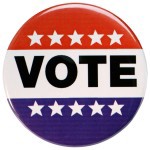
At first glance, the early results of last week’s midterm elections show a nationwide backlash against President Obama and the Democratic Party.
For the second straight midterm election, Republicans earned significant victories, this time flipping at least seven seats in the Senate to their side. Three incumbent Democratic senators lost their re-election bids, in North Carolina, Arkansas and Colorado. Four other states — Iowa, Montana, South Dakota and West Virginia — also changed party hands from Democrat to Republican. And results in Alaska, Virginia and Louisiana are still out, as of this writing.
The Senate victories now give the Republicans full control of Congress, with its majority in the House of Representatives being its largest margin since World War II. In addition, Republican governors won election or re-election in key states such as Ohio, Wisconsin and New Mexico, in Maryland — a traditionally Democratic state — and in Illinois, Obama’s home state.
Data such as this would make one think that voters are unhappy with the performance and direction of the White House. And that’s probably accurate. Early exit polls found that Obama’s approval rating is down 10 points versus 2012, and more voters said they were voting to show opposition to Obama (34 percent) rather than support for him (20 percent). More people also have an unfavorable view of the Democratic Party than a favorable view (53 percent to 44 percent).
But even more people have a negative view of the Republican Party (56 percent) than a positive view (40 percent).
So what gives? Voters made a statement directly to Obama with the midterm elections; they seemed to vote against Obama instead of for the Republicans. Republican supporters could spin that to say it’s not true; Democratic supporters could say things will change in two years when Obama’s out.
In the meantime, we can all expect two more years of jarring in D.C. with not much getting done, since the Republicans in Congress will most likely clash with Obama in the White House.
Voters are not happy, but who are they most unhappy with? That’s something the prognosticators will debate heavily for the next two years, before the next big national election in 2016.










